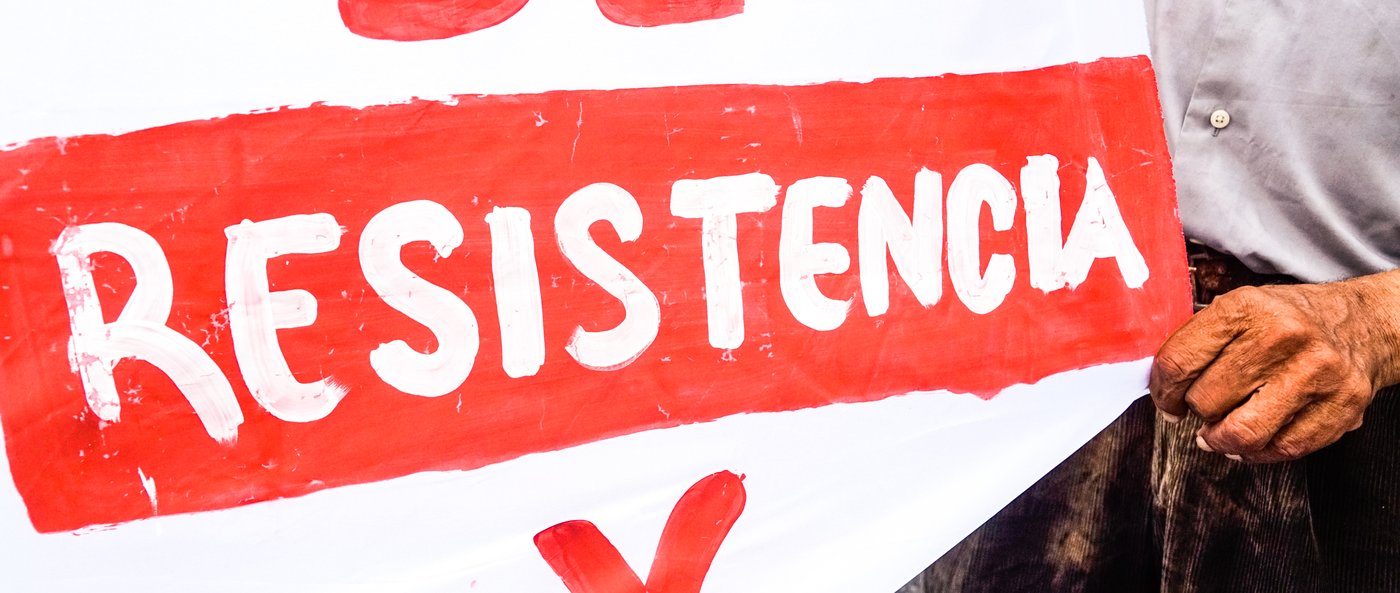
Expression
Proposed restrictions on access to information
Reformar la Ley de Acceso a la Información (LAIP) equivaldría a un retroceso en la lucha contra la corrupción en El Salvador. #Literal
— Fusades (@fusades) July 24, 2021
Te lo explicamos con estas 6 razones 👉🏻 https://t.co/CzSac5jqJF pic.twitter.com/T9tagt14pv
On 7th July 2021, the Nayib Bukele government presented a bill which would make regressive reforms to El Salvador’s Access to Public Information Law (Ley de Acceso a la Información Pública), undermining government transparency. Civil society organisations said the proposal would increase the deadline to respond to information requests, grant confidentiality to public officials’ declarations of assets and enable the restriction of informal information – which reportedly may include lists of advisors and their salaries and information on officials’ travels, among others. The bill would also expand the government’s discretionary powers over the Institute for Access to Public Information.
The reform was rejected by national organisations such the Asociación de Periodistas de El Salvador (Salvadoran Association of Journalists -APES) and legal centre FESPAD, as well as by the International Federation of Journalists (IFJ). According to APES, the competent authorities did not consult civil society on these amendments, which they said would represent a step backward in the promotion of transparency and accountability in El Salvador.
Other developments
On July 6, immigration authorities notified Lizárraga, a Mexican citizen and an editor for the independent Salvadoran news website El Faro, that his work permit had been denied “because he could not prove that he is a journalist.” https://t.co/yudKlVQ1Dz
— CPJ Américas (@CPJAmericas) July 12, 2021
On 6th July 2021, immigration authorities notified Mexican journalist Daniel Lizárraga, editor for the independent Salvadoran news website El Faro, that his work permit had been denied “because he could not prove that he is a journalist.” According to Lizárraga, during a visa interview, officials had asked him whether he planned to cover politics in the country. The journalist said he missed a second interview because he was quarantining after his lawyer was exposed to COVID-19, but had notified the authorities about the situation. Lizárraga returned to Mexico to comply with El Salvador’s immigration laws on 8th July 2021.
In a separate development, on 18th June 2021 security forces parked in front of journalist Angélica Cárcamo’s house in an apparent attempt to intimidate her. Cárcamo is president of journalists’ association APES. As reported by IM-Defensoras, the police monitoring exemplifies the institutional harassment that independent journalists in the country face for reporting on authorities.
In June 2021, the Committee to Protect Journalists (CPJ) and Thomson Reuters Foundation’s TrustLaw programme published a report on how COVID-19 responses affected media freedom in Latin America. The organisations compared emergency measures in five countries of the region where media’s capacity to report freely and to access information was restricted: Bolivia, Brazil, Dominican Republic, El Salvador and Peru. Their analysis found the most troubling examples of misuse of emergency measures in El Salvador and Brazil, where they said the pandemic offered an excuse for leaders with authoritarian leanings to further restrict access to official information and shield themselves from questions or criticism.
In El Salvador, the administration of President Bukele funnelled information through a few select sources, offering official updates only through the presidential press secretariat or the president’s own Twitter account. The national government also reduced the activities of government entities tasked with ensuring transparency and responding to public requests for information, effectively cutting off sources of vital data on public interest issues.
Association
#CIDHAudiencias | #ElSalvador Organizaciones señalaron afectaciones a la institucionalidad democrática, independencia judicial, enfoque militarista en seguridad ciudadana, en un contexto adverso para defender #DDHH, acceder a información y ejercer el periodismo. #180PeriodoCIDH 1 pic.twitter.com/yanhFLso6T
— CIDH - IACHR (@CIDH) June 30, 2021
On social media, the Inter-American Commission on Human Rights (IACHR) expressed regret at the absence of the Salvadoran State in a public hearing about the situation of human rights in the country, which took place on 30th June 2021. During the event, civil society representatives reported important restrictions on democratic institutions, human rights and judicial independence. Erika Guevara-Rosas, Americas director at Amnesty International, noted that the absence of State representatives testifies to the current government’s intolerance of public scrutiny and accountability.
On 8th July 2021, three civil society organisations published a special report on attacks against human rights defenders in El Salvador during the COVID-19 pandemic. The document was produced by feminist network Red Salvadoreña de Defensoras de Derechos Humanos (Salvadoran Women Human Rights Defenders’ Network), peace promotion organisation Servicio Social Pasionista (Pasionista Social Service) and journalists’ association APES.
Their study found that the country’s human rights situation was exacerbated through a series of emergency measures which hindered the work of defenders and journalists on the ground. The report shows that women faced the brunt of the authoritarian measures, with an increase in the number of attacks and intensification of smear campaigns against women human rights defenders and women journalists. Most of the attacks took place online and public officials were the main perpetrators.
Peaceful Assembly
On 20th July 2021, a small group of demonstrators protested against the adoption of cryptocurrency Bitcoin as a legal currency in El Salvador. The protesters called on legislators to revoke the "Bitcoin law", which was approved without public consultation in the beginning of June 2021. According to polling by the Universidad Francisco Gavidia (UFG), more than 75% of the population disapproves of the decision to adopt the cyptocurrency as legal tender.